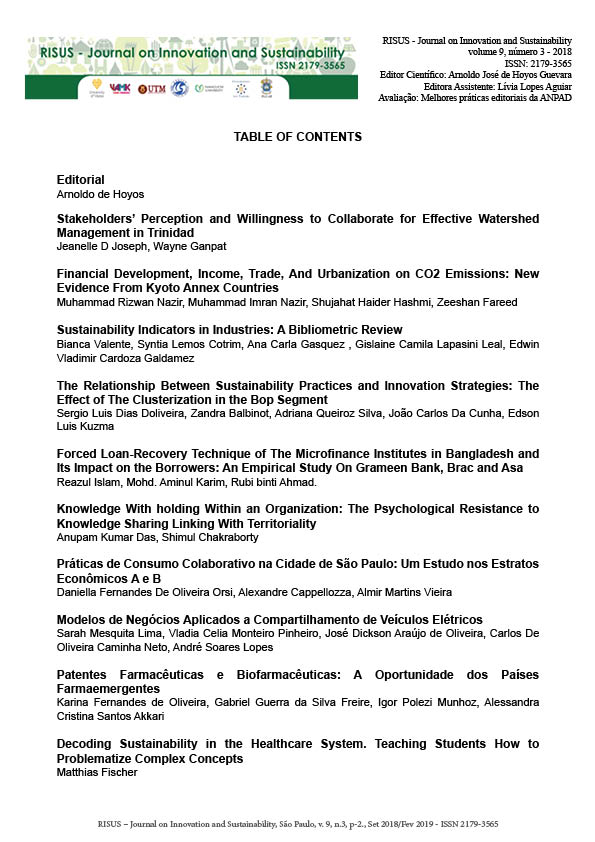FORCED LOAN-RECOVERY TECHNIQUE OF THE MICROFINANCE INSTITUTES IN BANGLADESH AND ITS IMPACT ON THE BORROWERS: AN EMPIRICAL STUDY ON GRAMEEN BANK, BRAC AND ASA
DOI:
https://doi.org/10.24212/2179-3565.2018v9i3p75-93Keywords:
Microfinance, Forced Loan Recovery, Default Penalty, PovertyAbstract
This paper presents the consequences of ‘forced loan-recovery’, which is an unconstitutional technique allegedly practiced by most of the microfinance institutes (MFIs) in Bangladesh. An empirical study was carried out on the borrowers of three leading microfinance institutes namely, Grameen Bank (GB), BRAC and ASA. Data were collected from two poverty-plagued villages namely, Uttar Islampur and Ruhitpur of Munshiganj district. The mixed research methods were applied. Findings of this study demonstrate that most of the borrowers experience assorted problems on the day of loan repayment. If they fail to pay back the debt aright loan officers and their allies treat them raucously. In order to avoid such unpleasant situations, insolvent borrowers tend to make multiple auxiliary loans and payback the previous ones. As a result, they fall into the decoy of a borrowing-repaying cycle. Sometimes, over-indebtedness compels them to sell out their tangible assets. Thus, they become even poorer. Furthermore, borrowers use to experience discontented domestic and social lives due to such loan-collection techniques of the microfinance institutes.Downloads
Published
2018-10-26
Issue
Section
Papers
License
This Journal is licensed under a Creative Commons Attribution-Non Commercial-No Derivers 4.0 International license.
1.The author (s) authorize the publication of the article in the journal;
2.The author (s) warrant that the contribution is original and unpublished and is not in the process of being evaluated in other journal (s);
3. The journal is not responsible for the opinions, ideas and concepts emitted in the texts, as they are the sole responsibility of its author (s);
4. The editors are entitled to make textual adjustments and to adapt the articles to the standards of publication.


